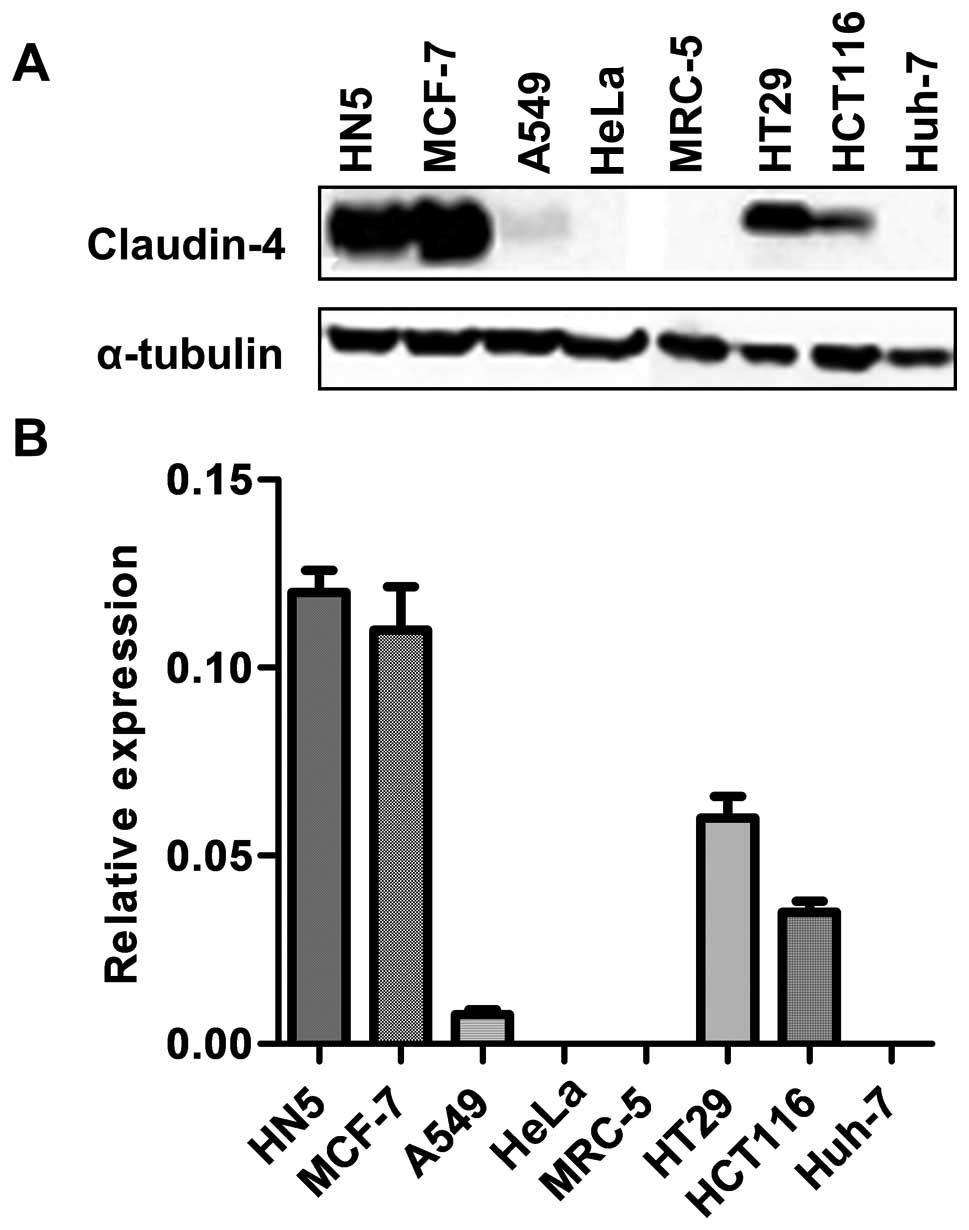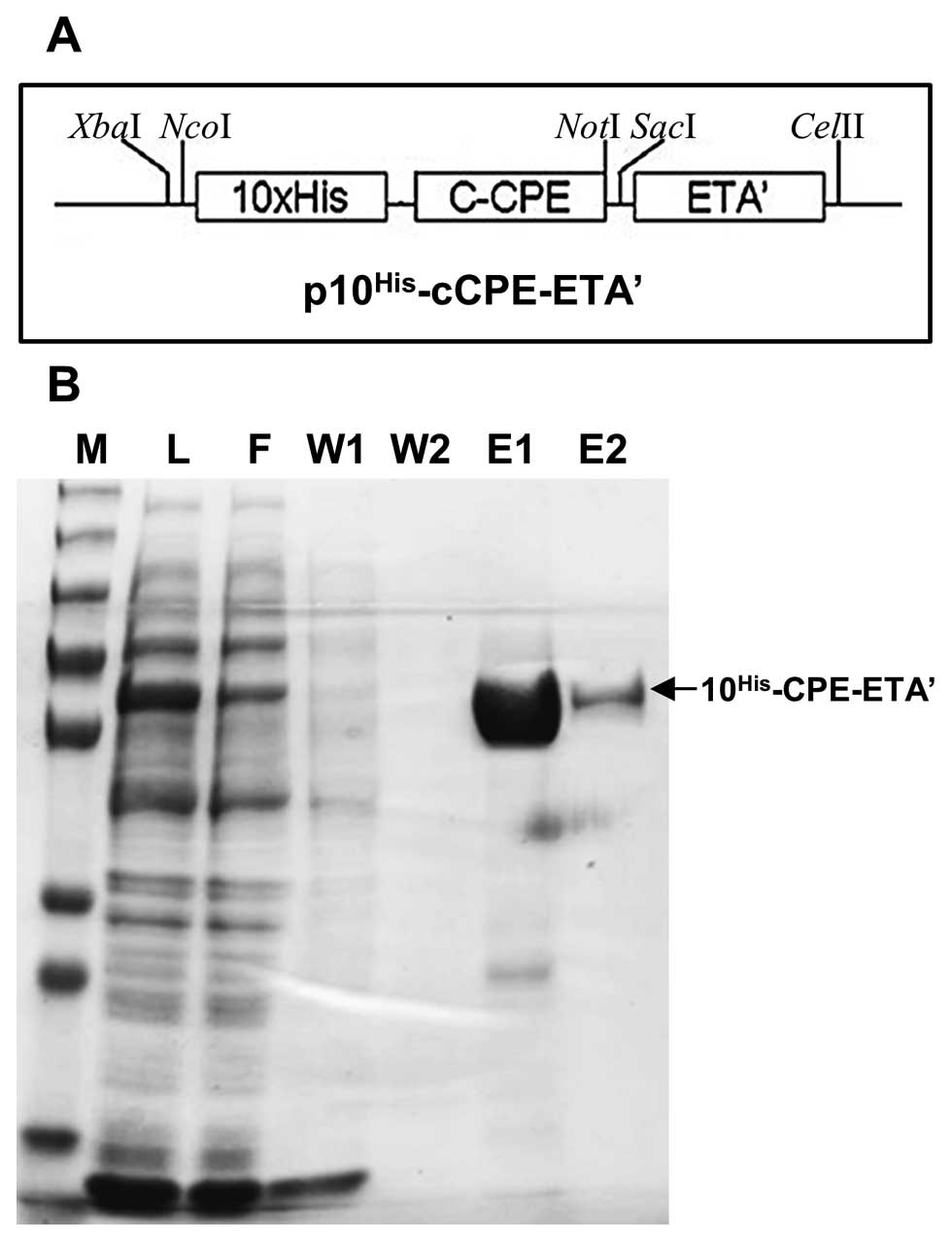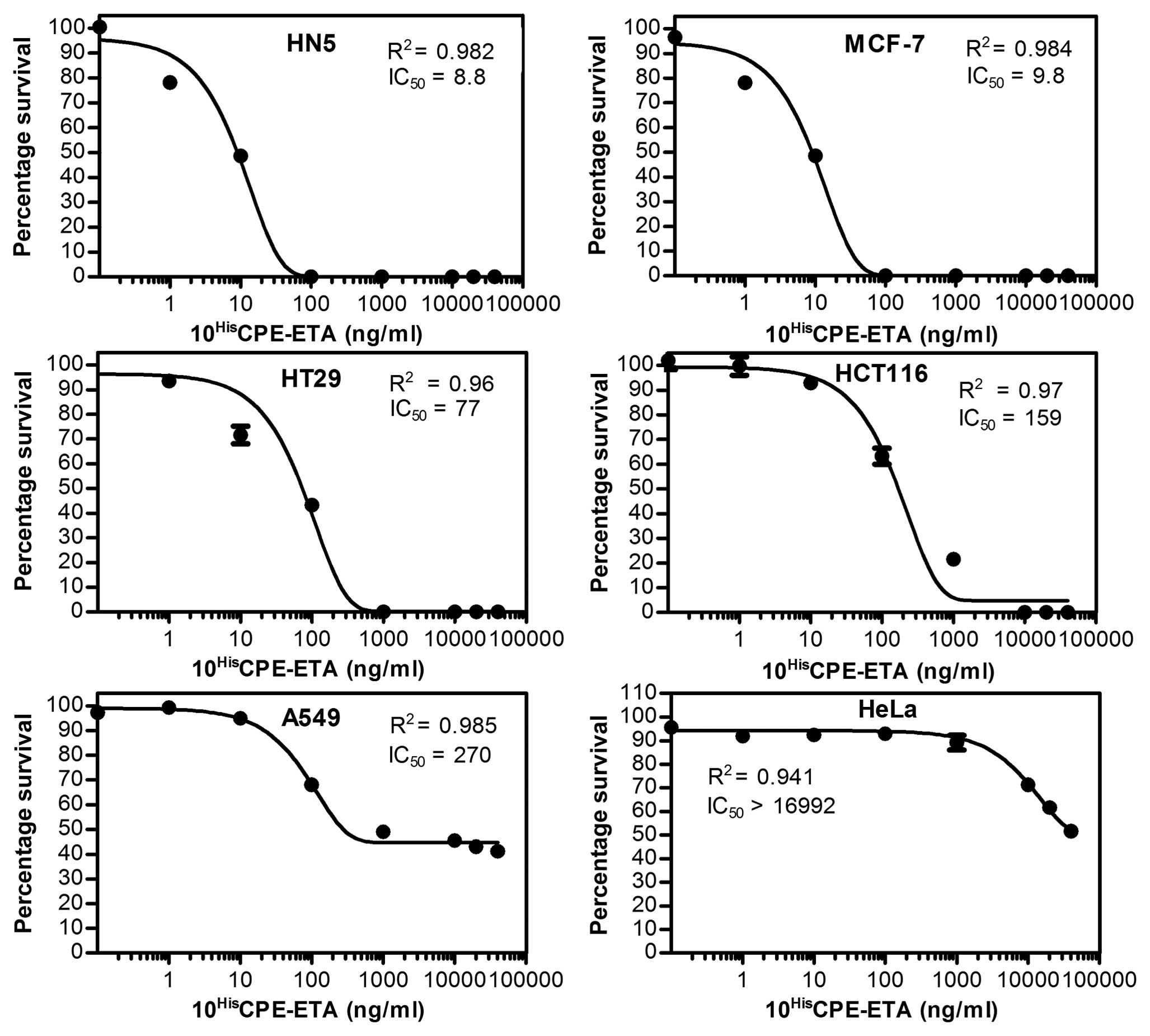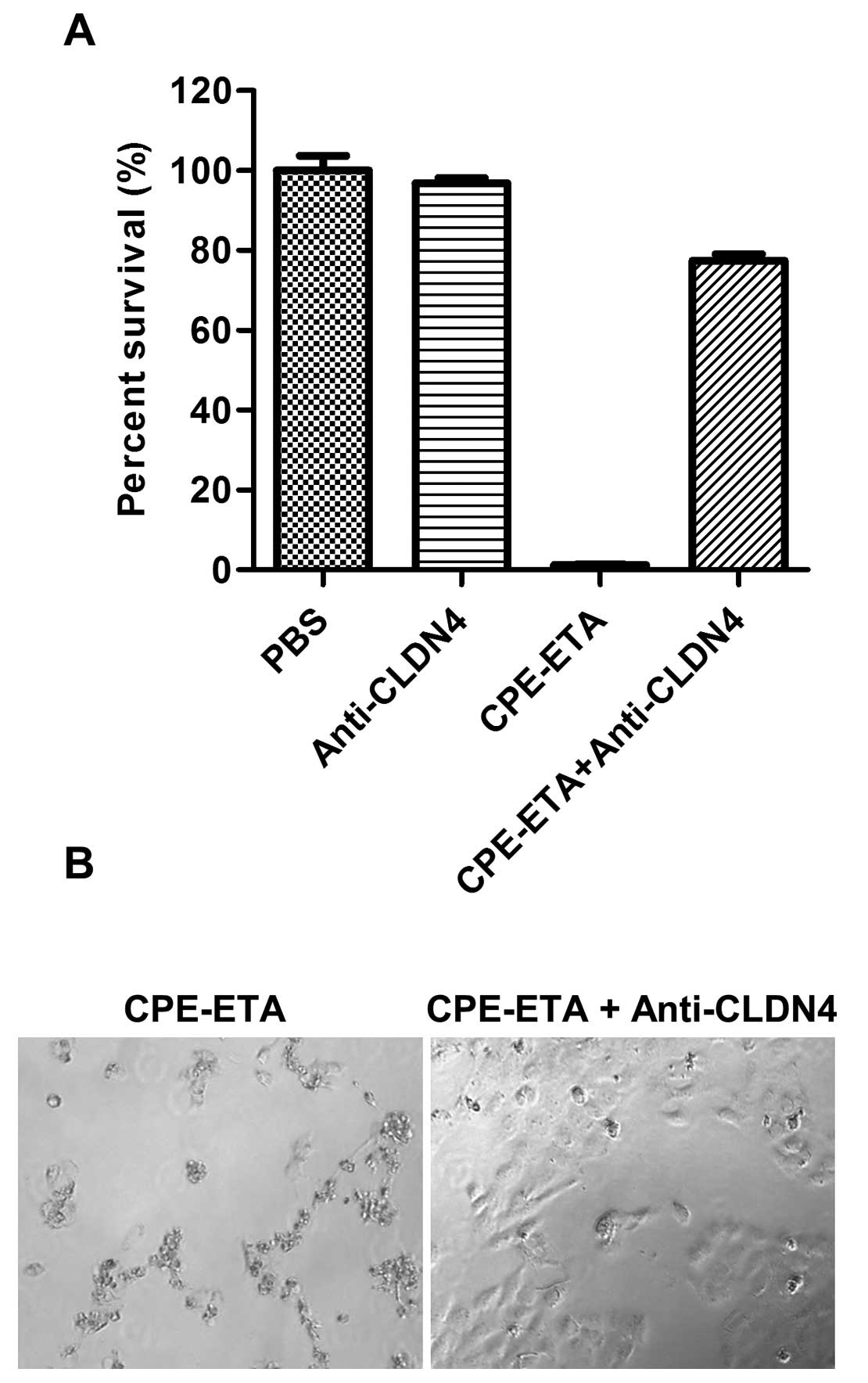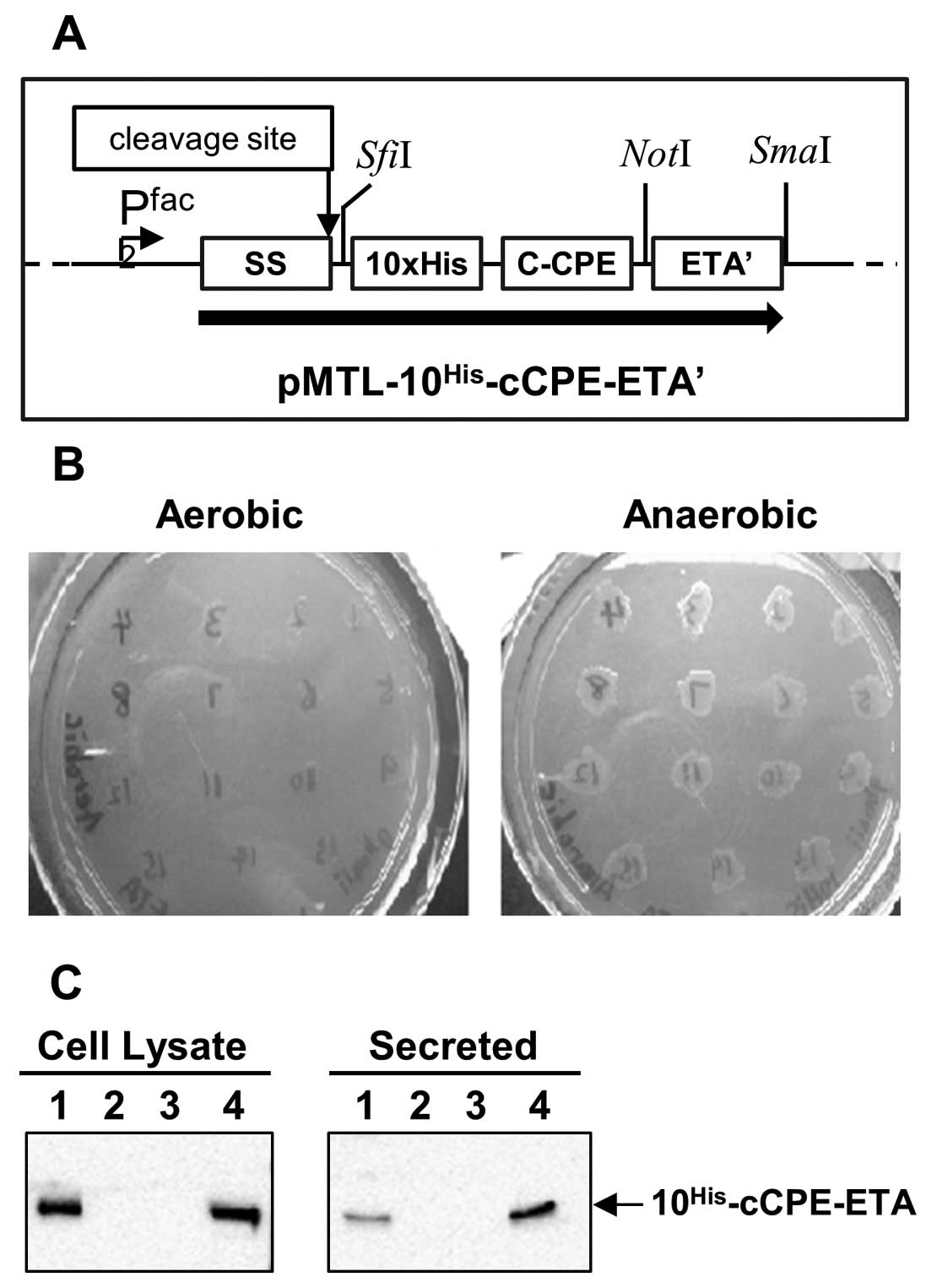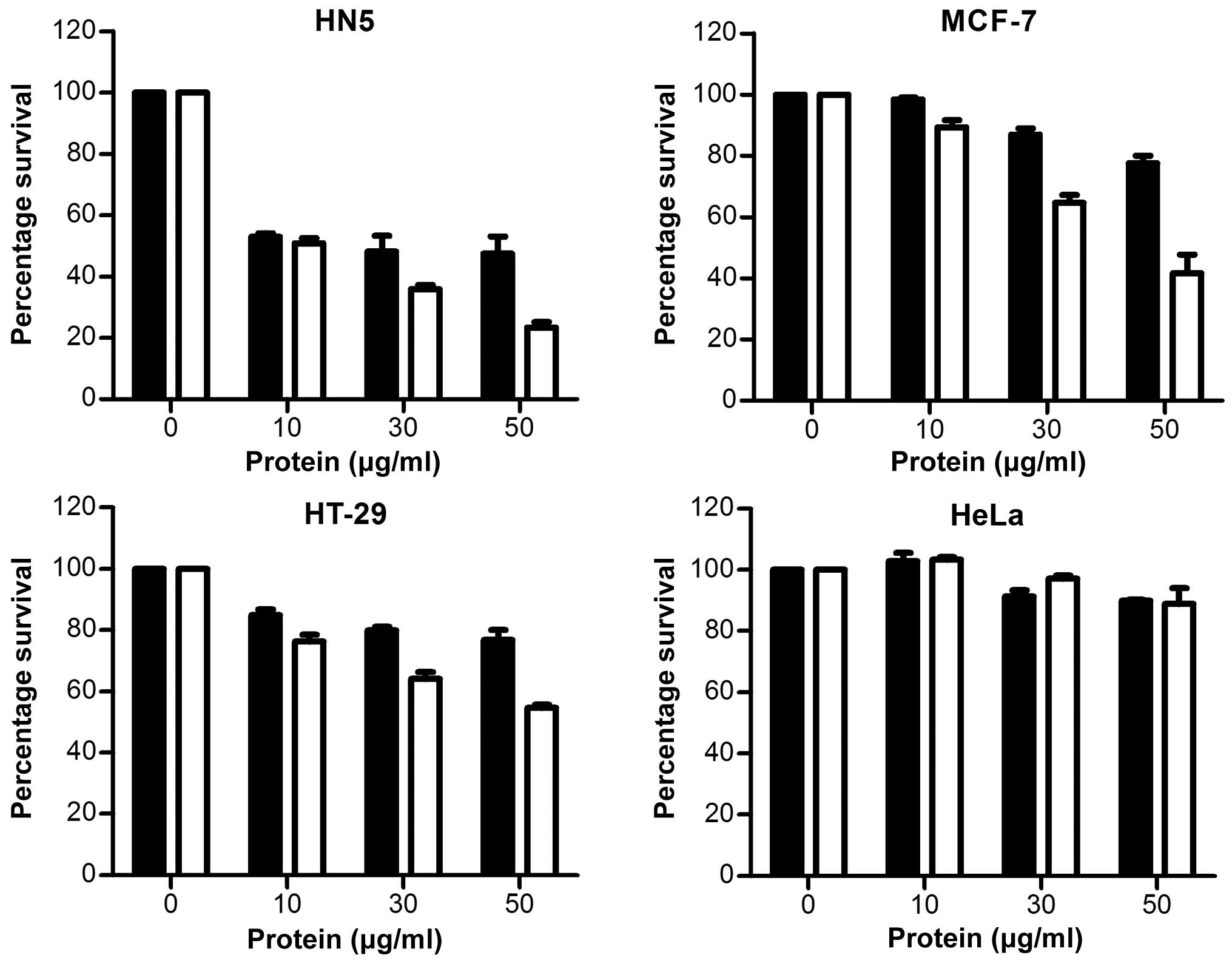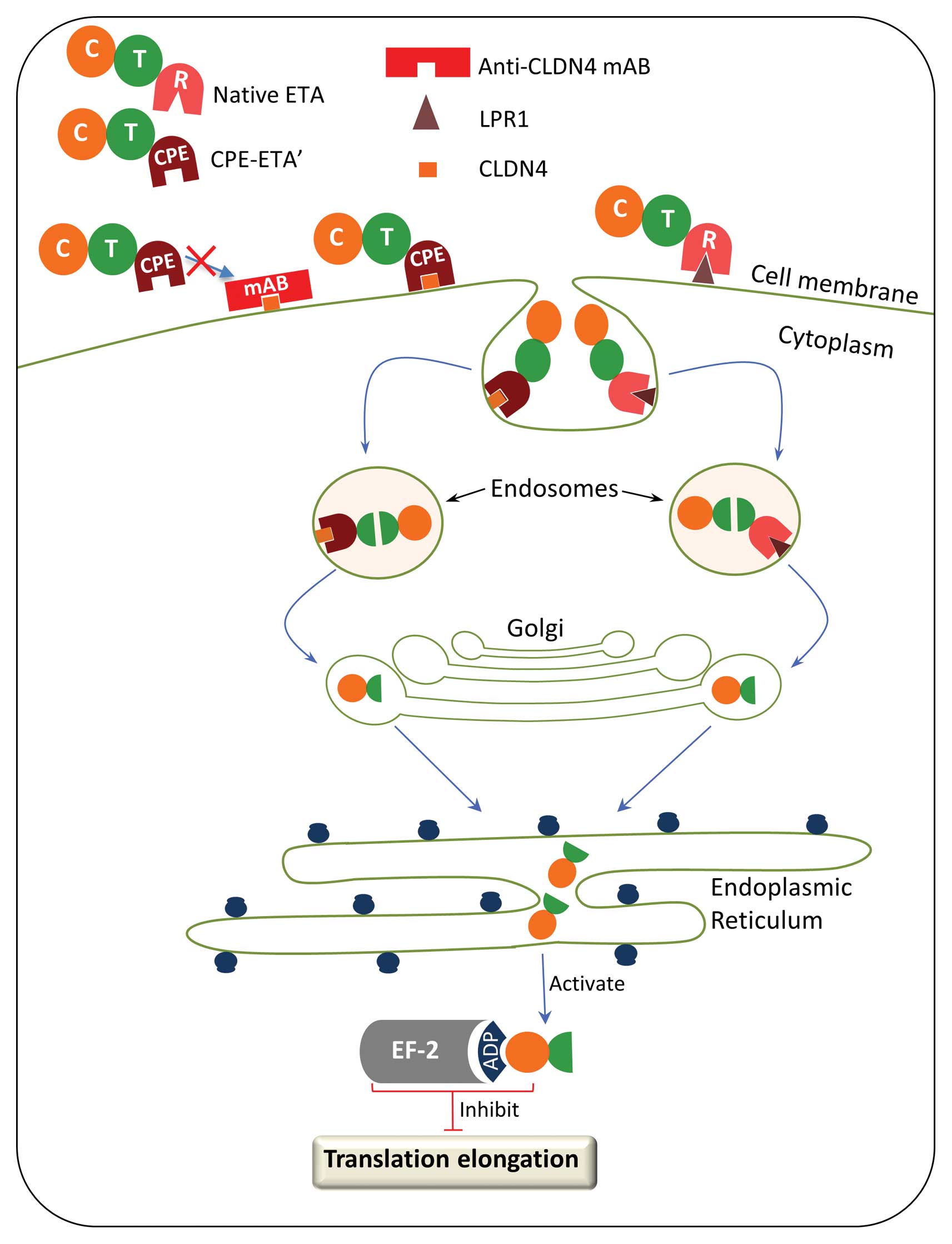|
1
|
Lucas R and Keisari Y: Innovative cancer
treatments that augment radiotherapy or chemo-therapy by the use of
immunotherapy or gene therapy. Recent Pat Anticancer Drug Discov.
1:201–208. 2006. View Article : Google Scholar : PubMed/NCBI
|
|
2
|
Krause G, Winkler L, Mueller SL, Haseloff
RF, Piontek J and Blasig IE: Structure and function of claudins.
Biochim Biophys Acta. 1778:631–645. 2008. View Article : Google Scholar : PubMed/NCBI
|
|
3
|
Lal-Nag M and Morin PJ: The claudins.
Genome Biol. 10:2352009. View Article : Google Scholar
|
|
4
|
Saeki R, Kondoh M, Kakutani H, et al: A
novel tumor-targeted therapy using a claudin-4-targeting molecule.
Mol Pharmacol. 76:918–926. 2009. View Article : Google Scholar : PubMed/NCBI
|
|
5
|
Morin PJ: Claudin proteins in human
cancer: promising new targets for diagnosis and therapy. Cancer
Res. 65:9603–9606. 2005. View Article : Google Scholar : PubMed/NCBI
|
|
6
|
Suzuki M, Kato-Nakano M, Kawamoto S, et
al: Therapeutic antitumor efficacy of monoclonal antibody against
claudin-4 for pancreatic and ovarian cancers. Cancer Sci.
100:1623–1630. 2009. View Article : Google Scholar : PubMed/NCBI
|
|
7
|
Ling J, Liao H, Clark R, Wong MS and Lo
DD: Structural constraints for the binding of short peptides to
claudin-4 revealed by surface plasmon resonance. J Biol Chem.
283:30585–30595. 2008. View Article : Google Scholar : PubMed/NCBI
|
|
8
|
Michl P, Buchholz M, Rolke M, et al:
Claudin-4: a new target for pancreatic cancer treatment using
Clostridium perfringens enterotoxin. Gastroenterology.
121:678–684. 2001. View Article : Google Scholar : PubMed/NCBI
|
|
9
|
Pier GB, Boyer D, Preston M, et al: Human
monoclonal antibodies to Pseudomonas aeruginosa alginate
that protect against infection by both mucoid and nonmucoid
strains. J Immunol. 173:5671–5678. 2004.PubMed/NCBI
|
|
10
|
Phelan MC: Basic techniques in mammalian
cell tissue culture. Curr Protoc Cell Biol. Chapter 1: Unit 1 1.
2007. View Article : Google Scholar
|
|
11
|
Kurien BT and Scofield RH: Introduction to
protein blotting. Methods Mol Biol. 536:9–22. 2009. View Article : Google Scholar : PubMed/NCBI
|
|
12
|
Yao Q, Cao S, Li C, et al: Turn a
diarrhoea toxin into a receptor-mediated therapy for a plethora of
CLDN-4-overexpressing cancers. Biochem Biophys Res Commun.
398:413–419. 2010. View Article : Google Scholar : PubMed/NCBI
|
|
13
|
Mosmann T: Rapid colorimetric assay for
cellular growth and survival: application to proliferation and
cytotoxicity assays. J Immunol Methods. 65:55–63. 1983. View Article : Google Scholar : PubMed/NCBI
|
|
14
|
Dong H, Zhang Y, Dai Z and Li Y:
Engineering Clostridium strain to accept unmethylated DNA.
PLoS One. 5:e90382010.
|
|
15
|
Barbé S, Van Mellaert L and Anné J: The
use of clostridial spores for cancer treatment. J Appl Microbiol.
101:571–578. 2006.
|
|
16
|
Litkouhi B, Kwong J, Lo CM, et al:
Claudin-4 overexpression in epithelial ovarian cancer is associated
with hypomethylation and is a potential target for modulation of
tight junction barrier function using a C-terminal fragment of
Clostridium perfringens enterotoxin. Neoplasia. 9:304–314.
2007. View Article : Google Scholar
|
|
17
|
Lanigan F, McKiernan E, Brennan DJ, et al:
Increased claudin-4 expression is associated with poor prognosis
and high tumour grade in breast cancer. Int J Cancer.
124:2088–2097. 2009. View Article : Google Scholar : PubMed/NCBI
|
|
18
|
Ueda J, Semba S, Chiba H, et al:
Heterogeneous expression of claudin-4 in human colorectal cancer:
decreased claudin-4 expression at the invasive front correlates
cancer invasion and metastasis. Pathobiology. 74:32–41. 2007.
View Article : Google Scholar : PubMed/NCBI
|
|
19
|
Landers KA, Samaratunga H, Teng L, et al:
Identification of claudin-4 as a marker highly overexpressed in
both primary and metastatic prostate cancer. Br J Cancer.
99:491–501. 2008. View Article : Google Scholar : PubMed/NCBI
|
|
20
|
Kominsky SL, Vali M, Korz D, et al:
Clostridium perfringens enterotoxin elicits rapid and
specific cytolysis of breast carcinoma cells mediated through tight
junction proteins claudin 3 and 4. Am J Pathol. 164:1627–1633.
2004. View Article : Google Scholar
|
|
21
|
Barth S, Huhn M, Matthey B, et al:
Recombinant anti-CD25 immunotoxin RFT5(SCFV)-ETA’ demonstrates
successful elimination of disseminated human Hodgkin lymphoma in
SCID mice. Int J Cancer. 86:718–724. 2000.
|
|
22
|
Wei MQ, Mengesha A, Good D and Anné J:
Bacterial targeted tumour therapy-dawn of a new era. Cancer Lett.
259:16–27. 2008. View Article : Google Scholar : PubMed/NCBI
|
|
23
|
Frederick BA, Helfrich BA, Coldren CD, et
al: Epithelial to mesenchymal transition predicts gefitinib
resistance in cell lines of head and neck squamous cell carcinoma
and non-small cell lung carcinoma. Mol Cancer Ther. 6:1683–1691.
2007. View Article : Google Scholar : PubMed/NCBI
|
|
24
|
Rangel LB, Agarwal R, D’Souza T, et al:
Tight junction proteins claudin-3 and claudin-4 are frequently
overexpressed in ovarian cancer but not in ovarian cystadenomas.
Clin Cancer Res. 9:2567–2575. 2003.PubMed/NCBI
|
|
25
|
Li J, Sherman-Baust CA, Tsai-Turton M,
Bristow RE, Roden RB and Morin PJ: Claudin-containing exosomes in
the peripheral circulation of women with ovarian cancer. BMC
Cancer. 9:2442009. View Article : Google Scholar : PubMed/NCBI
|
|
26
|
Meertens L, Bertaux C, Cukierman L, et al:
The tight junction proteins claudin-1, -6, and -9 are entry
cofactors for hepatitis C virus. J Virol. 82:3555–3560. 2008.
View Article : Google Scholar : PubMed/NCBI
|
|
27
|
Gourin CG and Podolsky RH: Racial
disparities in patients with head and neck squamous cell carcinoma.
Laryngoscope. 116:1093–1106. 2006. View Article : Google Scholar : PubMed/NCBI
|
|
28
|
Al-Sarraf M: Treatment of locally advanced
head and neck cancer: historical and critical review. Cancer
Control. 9:387–399. 2002.PubMed/NCBI
|
|
29
|
Bonner JA, Harari PM, Giralt J, et al:
Radiotherapy plus cetuximab for squamous-cell carcinoma of the head
and neck. N Engl J Med. 354:567–578. 2006. View Article : Google Scholar : PubMed/NCBI
|
|
30
|
Wei MQ, Ipe D, Cao S and Hashimi S:
Genetic Modification to Improve the Therapeutic Potential of
Oncolytic Clostridia. Advances in Genetics Research. Urbano KV: 8.
Nova Publishers; Hauppauge, NY: pp. 65–82. 2011
|
|
31
|
Cao S, Cripps A and Wei MQ: New strategies
for cancer gene therapy: progress and opportunities. Clin Exp
Pharmacol Physiol. 37:108–114. 2010. View Article : Google Scholar : PubMed/NCBI
|
|
32
|
Theys J, Pennington O, Dubois L, et al:
Repeated cycles of Clostridium-directed enzyme prodrug
therapy result in sustained antitumour effects in vivo. Br J
Cancer. 95:1212–1219. 2006.
|
|
33
|
Groot AJ, Mengesha A, van der Wall E, van
Diest PJ, Theys J and Vooijs M: Functional antibodies produced by
oncolytic clostridia. Biochem Biophys Res Commun. 364:985–989.
2007. View Article : Google Scholar : PubMed/NCBI
|















